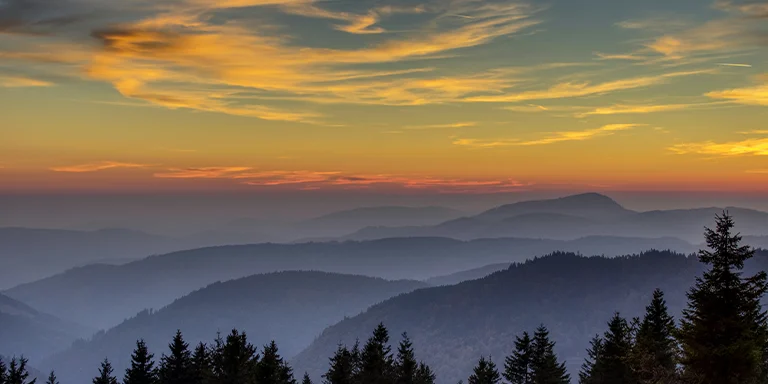

Prepare for your journey into the great outdoors, where the wonders of nature await. However, before you step into bear country, safety must take precedence.
In this guide, we’ll lead you through the essentials of hiking and camping in bear territory. But before we get into the practical details, it’s essential to grasp bear behavior.
Interested? Let’s begin.
Prior to your bear country adventure, familiarize yourself with our two main bear neighbors: black bears and grizzly bears:
Black Bears:

If you encounter a black bear:
Grizzly Bears:

If you encounter a grizzly bear:
Both black bears and grizzly bears can have fur ranging from blonde to black, so fur color alone is not a reliable indicator.
Understanding these differences is crucial for your reaction during bear encounters.
When you’re exploring bear country, being prepared for a potential encounter is vital for your safety and the bear’s well-being. Here are some essential steps to get ready:
1. Know the Regulations: Before you set out, find out about the bear-related regulations at your destination. Different areas may have specific rules, such as requiring bear canisters or enforcing storage regulations like bear poles, cables, or lockers. Ensure you’re aware of these rules to comply with them.
2. Bear Spray: In national parks where grizzlies live, like Glacier or Grand Teton, carrying bear spray is encouraged. However, in places like Yosemite, where only black bears reside, bear spray is not allowed. Bear spray is a powerful deterrent designed to fend off a charging bear and is proven to be highly effective. Remember, never spray your tent or pack with bear spray as it may attract bears.
Guidelines for Hiking Safely in Bear Country:

Camping in bear country comes with its own set of rules to ensure safety for both you and the bears. Here’s what you need to know:
1. Keep Food Secure: Bears have an excellent sense of smell, and food is a major attraction for them. Never leave food out and unattended. Always store your food safely during both day and night.
2. Proper Food Storage: Utilize proper food storage techniques. This can include using bear canisters, bear bags, tree- or pole-hang bags, or provided metal food lockers. Anything with a scent, from food and snacks to even empty containers and cookware, should be stored securely. Some hikers even store their stove. To delve deeper into bear canisters, check out our dedicated post here.
3. Distance from Your Camp: Cook your meals and wash your dishes (and hands) away from your tent. This prevents food odors from attracting bears near your sleeping area. Use only a tiny amount of unscented soap to minimize odors.
Prepare for your bear country adventure by understanding bear behaviors. For black bear encounters, make noise, secure food, and don’t play dead. With grizzlies, stay calm, anticipate a bluff charge, and play dead if attacked.
Familiarize yourself with regulations, carry bear spray, and follow safe hiking practices. While camping, prioritize food security and storage for safety.
With this knowledge, you can venture into bear country with confidence, but never forget to prioritize safety above all else. Additionally, think about carrying a personal locator beacon or a satellite messenger to provide an added layer of security and assurance.
The bear safety rhyme, often referred to as “If it’s black, fight back; if it’s brown, lie down,” is a simple mnemonic device to help people remember how to react when encountering bears in the wild. When facing a black bear, which is generally less aggressive, it suggests being assertive and fighting back if attacked. Conversely, when encountering a brown bear, including grizzly bears known for their aggressiveness, it advises playing dead by lying flat on your stomach with your hands over your head if the bear attacks. While this rhyme can be a helpful memory aid, it’s essential to understand that bear encounters are unpredictable, and following local guidelines and safety precautions is paramount.
Bears, whether black or grizzly, possess an extraordinary sense of smell, with the ability to detect food scents from significant distances. Black bears can typically smell food from several miles away, while grizzly bears can detect it from as far as 20 miles. To ensure safety in bear country, it’s essential to store food properly and follow food storage guidelines meticulously, minimizing the risk of attracting these bears to your campsite or trail.